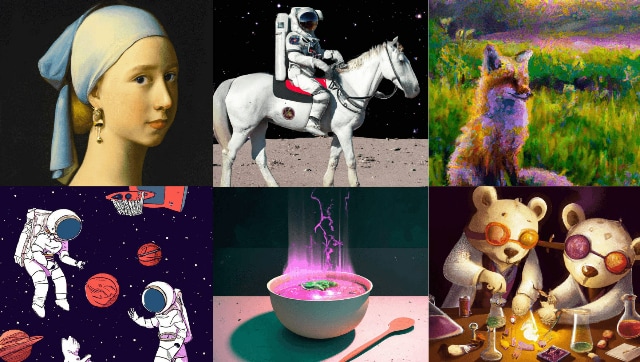Given how massive text-to-image tools from Stability AI like DALL-E2 and OpenAI’s ChatGPT have become in just months after their launch, there is no doubt that 2023 will be a massive year for AI bots. China, which has been conspicuously missing from AI-related innovations for some time now, will also be stepping up their efforts in the generative AI space. However, the way they will be going about it, seems a little dubious.

Entrepreneurs, researchers, investors and the tech community, in general, are looking for ways to carve out a niche for themselves in China’s isolation. As a result, Tech firms are devising tools built on open-source models to attract consumer and enterprise customers. Individuals are cashing in on AI-generated content. Regulators have responded quickly to define how text, image, and video synthesis should be used. However, all this is coming amid US tech sanctions on China which is hampering their ability to keep up with AI advancement.
Creating for China, with a local twist.
Chinese tech giants have also showcased a few AI bots to the public which work with a twist that suits the country’s tastes and political climate. Apparently, most Chinese AI startups have based their generative models, especially text-to-image generative AI models, on the same principles and training mechanisms as DALL-E2.
Beyond that though, Baidu, one of the biggest tech giants in China, has in recent years been stepping up its game in autonomous driving. Another Chinese tool that has made noise is Tencent’s Different Dimension Me, which can turn photos of people into anime characters. The AI generator exhibits its own bias. Intended for Chinese users, it took off unexpectedly in other anime-loving regions like South America. But users soon realized the platform failed to identify black and plus-size individuals, groups that are noticeably missing in Japanese anime
But unlike in the west, China’s effort to develop its own AI universe has government backing. Local Chinese governments are also investing in several projects on their own through IDEA, a research lab owned and backed by the Chinese Communist Party.
Censoring AI
While no AI generative model is without its own inherent bias that crops up because of model training, in China, AI generative bots have their own filters. For example, Baidu’s text-to-image model filters out politically sensitive keywords.
While applying filters on generative AI is actually useful, any sort of a censorship is a double-edged sword. AI generative models have often been accused of churning out sexually explicit and sexist content. Furthermore, users are asked to verify their names before using generative AI apps, just like all other aspects of the internet.
The Chinese regulation, also explicitly bans people from generating and spreading AI-created fake news. How that will be implemented, though, remains to be seen.
Challenges ahead
The biggest challenge for China’s AI startups and tech firms has to be training their bots in neural networks since they don’t have the tools to do so, thanks to the US government imposing sanctions on China that prevent them from importing high-end AI chips.
As a result, many Chinese AI startups are focused on the application front that doesn’t need high-performance semiconductors that handle seas of data. As for those doing more advanced research using less powerful chips means computing will take longer and cost more. Such sanctions are pushing China to invest in advanced technologies over the long run.
from Firstpost Tech Latest News https://ift.tt/bQCYsTr

No comments:
Post a Comment
please do not enter any spam link in the comment box.